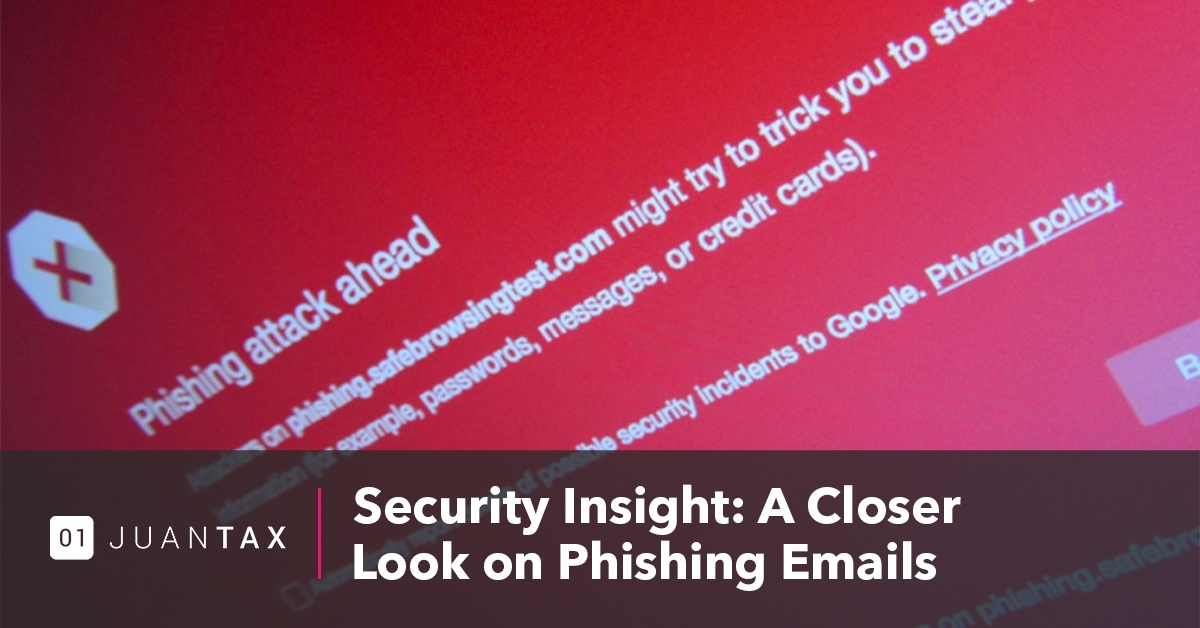Phishing (pronounced as “fishing”) is a type of internet fraud which uses messages and websites to infiltrate computers and steal important information — and until now, individuals as well as businesses could become potential victims of this malicious act.

Best examples of phishing are emails from fraudulent websites requesting for your personal and even financial information. These emails seem to be legit at first due to its branding, but what you didn’t know is that those messages contain viruses and malicious programs that could compromise your account and worse, nab your personal data.
In this article, we’ll discuss everything that you need to know about phishing, and share some tips on how you could protect your account from being infiltrated by these fraudulent activities.
Everyone Can Become a Target
Believe it or not, despite today’s improvements in technology especially to those that focuses on security, phishing is still a phenomenal issue amongst businesses around the globe.
According to an article from dashlane.com, it stated that one of the main reasons on why phishing increases each year is because these email messages are a big hit amongst perpetrators, and are undeniably “profitable” especially when a victim opens the message or gets caught in a clickbait. They also said that these attacks would often cost around $1.6 million of losses for a mid-size company.
This fact was supported by recent reports made by PhishMe, saying that phishing attempts had increased to a whopping rate of 65% and Wombat Security, which also stated that 76% of businesses are considering themselves as victims of phishing attacks.
These numbers truly proved that no one is safe when it comes to these kinds of malicious acts. Who knows? Maybe one day you might see a phishing email lurking on your inbox. The question is “what are you gonna do about it?”.
How to Handle Phishing Emails?
Whether you’re an individual or a business, one of the most important things that you should consider is the security of your private information. So in order to avoid this scenario, it’s best not to use your email in sending out personal information, for this might lead to hackers taking advantage of your data.
But, if you’ve already get yourself caught up in these kinds of situations, then you have to do the following:
1. Don’t Panic
Some time ago, I was watching movies via stream on my phone when suddenly a message shows up, saying that my device is already infected, and that it needs to be cleaned immediately.
At that point, I freaked out and clicked, wondering why does the website knew about the type of device i’m using. The end result was that I restarted my phone, and then I checked to see if there are any malicious files that’s inside of it — good thing that there wasn’t any.
Moral lesson — Once you receive these kinds of scams whether by email or website, please be calm and don’t panic. Carelessness and ruminating would lead you to lots of trouble. Being patient is one of the best abilities that you need to have in combating these threats, which leads to….
2. Set your Mind Straight
Admit it, people often freak out whenever they receive emails saying that they’ve just won a raffle. Sometimes, email users would go nuts whenever a somewhat “chinese” ancestor of them who’s living in Zimbabwe would send a parcel containing gadgets and money.
Let’s get to the point: Think and set your mind straight. Once you’ve received emails that says you won a million dollars and it’s asking you to click on the button to know how to claim your prize, ask yourself first: “Did I joined any contests/raffles recently?”, or ask someone if do you really have a Japanese-Zimbabwe bloodline that runs in your family.
If none of these scenarios made sense, then you can confirm that it’s a fake — It’s just like in your early days in science class wherein you’re searching for the root cause of the problem before solving it. Now, if your hypothesis isn’t true, then it’s time to act.
3. Don’t Open
One of the best characteristics of phishing emails is that they seemed to look like legit emails at first glance, which is why phishing is often called a “brand spoofing”. They looked legit, to the point that it’s sometimes thrilling and too good to be true, which makes you cringe the time you saw it.
Also, you would easily identify a scam email once it asks you to give your personal/financial information. So in the meantime, it’s good to just leave those messages as unread once you see these kinds of email floating in your inbox.
4. Don’t Reply
Like what I said in number 2, phishing email comes in clever ways: for example, a long lost relative of yours is asking for your help and needs ransom money, or one would tell you that you’ve won an inheritance and to unlock it you need to reply and give them your lifetime savings.
As much as possible, please don’t fall for it, and do not respond to any of these messages or even call any contact numbers provided in the email once you’ve accidentally opened it. These are just hoax emails that wants your attention.
5. Never Click Links and Attachments
In a report from Verizon, it stated that 30% of those phishing messages were opened by targeted users, and that 12% of these victims were caught in traps of clicking malicious files attached within those emails.
Phishing emails were designed to look exciting, but there would also be instances that these emails were sent for the sole purpose of scaring you, until you lose your head and have that urgency of clicking that button (see no. 1), which is why not clicking links or downloading any files or attachments included within the phishing email can really help you from escaping these tech traps.
6. Delete the Message
It’s better be safe than sorry — which is why deleting the email message would typically save you from a whole heap of trouble.
7. Report Issue Immediately
Whenever you’ve experienced these kinds of phishing emails, it’s also best that you report these kinds of incidents to respective authorities.
In today’s day and age, saving your personal information could already match up with the responsibility of saving one’s life, considered the fact that these fraudulent attacks had cost such financial losses to both individuals and companies around the world. Hope that these tips above would not only be able to save you from phishing attacks, but it might save others as well from being perpetrated by hackers, so don’t become a victim of these foolish schemes, and remember the drill.










